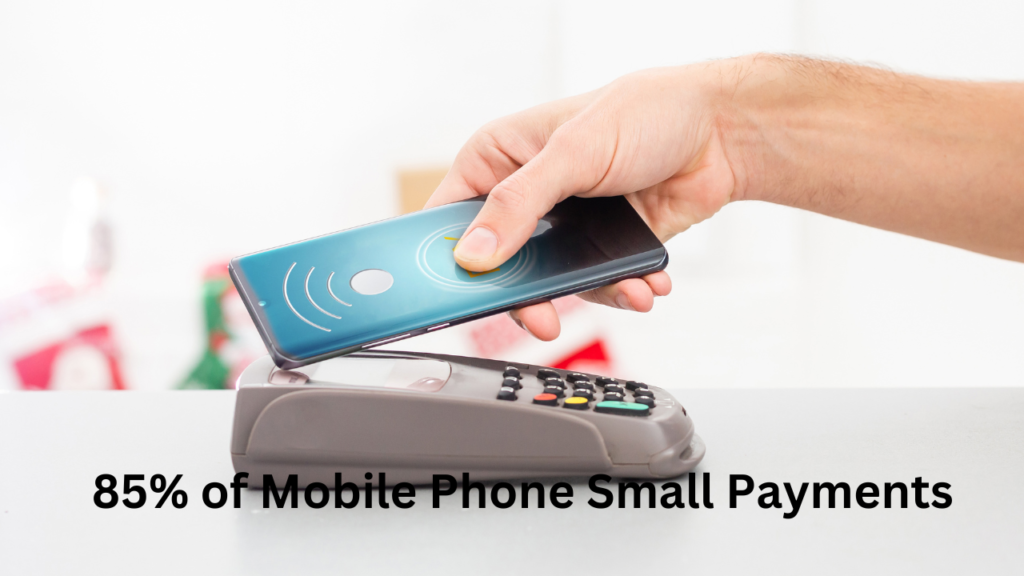South Korea is very advanced in technology. But something odd is happening with payments there. Most people use phones to pay for small things. However, a huge 85% of those mobile payments get turned into cash in the end. This seems very strange, doesn’t it?
Why do people make digital payments first, only to convert them to physical cash later? We’ll explore the reasons behind this puzzling trend of 85% of Mobile Phone Small Payments Converted into Cash in Korea. We’ll also look at what it could mean for a cashless future.
85% of Mobile Phone Small Payments Converted into Cash
South Korea is famous for quickly using new technology. Many people there have smartphones. The country has a strong system for fast internet. This makes it easy for digital payment apps to work well.
In Korea, many payment apps like KakaoPay, Naver Pay, and Samsung Pay are popular. People use these apps to pay for things, send money, and pay bills from their phones. But even though mobile payments are used a lot, 85% of these small transactions end up being paid in cash.
Reasons Behind 85% of Mobile Phone Small Payments Converted into Cash
Many Koreans like having actual money in their hands, which is especially true for older folks. They feel safe and secure when holding cash because of long-held beliefs and traditions in Korean culture. Even though paying with phones is easier, many people prefer using physical money.
Another big reason is gift-giving customs in Korea. Cash gifts are expected for holidays, weddings, and other special events, making cash important in everyday life. So even if people pay digitally first, they often get cash later for gifts, which leads to 85% of mobile payments becoming cash.
Cash’s Role for Small Businesses
Korea’s economy relies greatly on small businesses. Many of these companies use cash payments. Some do take digital payments, too. But cash remains a simple and reliable way to do transactions. The reasons are lower fees, easier bookkeeping, and flexibility for small transactions.
Sometimes, owners worry about government oversight or taxes with digital payments. Cash gives more privacy that digital can’t offer, which is why many small businesses convert cash from mobile payments.
COVID-19’s Impact
The COVID-19 pandemic affected cash conversion in Korea differently. Social distancing led to more digital payments since people needed less contact. However, the 85% cash conversion rate stayed about the same. Even with the pandemic changes, underlying reasons for preferring cash remained strong.
The pandemic sped up digital payments a bit, but it didn’t remove the reason people like using cash sometimes.
Financial Knowledge and Trust
Korea has strong banks, but some folks don’t fully trust digital payments or know how they work. This lack of trust may lead people to use cash more since it feels safer. There were also cyberattacks that made people worry about fraud with digital money. Even though payment apps have strong security, the fear of identity theft could make Koreans want to use cash instead to convert small mobile payments.
Another, the big reason why most mobile small payments turn into cash in Korea is a lack of trust in digital transactions. While Korea’s banking system is sound, some people are uncomfortable with how digital payments function. They may rely on cash more as it seems as a more straightforward, safer option. Data breaches also make people afraid that digital payments are not secure. Though payment companies work hard on security, worries about online fraud and identity theft push Koreans to convert small mobile payments to cash.
Mobile Payments and Cash Usage in Korea
Korea is a technologically advanced nation. However, many people still prefer using cash for small payments made with 85% of Mobile Phone Small Payments Converted into Cash. There are several reasons behind this high conversion rate. Some cultural factors, business practices, and security concerns influence people’s decision to stick with cash.
Mobile payment companies need to understand and address these underlying concerns. They should raise awareness about digital payment security. Offering incentives to businesses for accepting electronic transactions could help. Additionally, promoting a cashless culture among the public is crucial.
Conclusion: 85% of Mobile Phone Small Payments
The 휴대폰 소액결제 현금화 85% highlights Korea’s complex relationship with technology and cultural preferences. Despite leading in digital infrastructure, Korea’s affinity for physical cash stems from traditional values, small business norms, and financial security worries. This trend reveals challenges in achieving an utterly cashless society. While technology advances, addressing deep-rooted preferences requires a thoughtful approach. Efforts should focus on enhancing security, building trust, and providing incentives for businesses and consumers. Ultimately, creating a balanced payment ecosystem demands understanding of Korea’s unique cultural and economic landscape.

